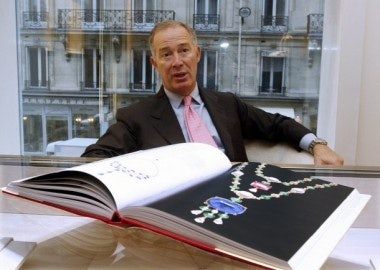Company Pulling Back In Eurozone, Sees "Potential" In Asia-Pacific#

This week at the Global Luxury Summit organized by Reuters, luxury executives from around the world discussed their prospects for growth in a still-sluggish global market. Though a number of executives pointed out encouraging figures coming out of the United States after its protracted slump, the consensus seemed to be that Asia -- particularly mainland China -- would continue to pull the industry for the near- to medium-term. While this isn't terribly surprising, considering East Asia is home to the largest (Japan) and second-largest and fastest-growing (China) luxury markets in the world, it is interesting to note the different strategies these companies have for taking advantage of -- and continuing to build -- consumer interest in their products in these markets.
Judging by remarks made by some of the high-profile speakers in attendance at the Summit, it's clear that while all see Asia as an important engine for growth, they're all betting that Chinese consumers are the key to sustainable revenue over the long term. Japanese brand representatives in particular mentioned the buying power of Chinese tourists in high-end shopping districts like Tokyo's Ginza, with Shiseido's president Shinzo Maeda saying, "Large tour buses arrive in the streets of Ginza...almost every day, and the Chinese language is becoming ubiquitous all over Ginza," and Mikimoto & Co. President Noriyuki Morita telling Reuters, "In about three years' time, sales from China will probably double to account for some 10 percent of our total sales. China is Asia's big consumption country."
But bullishness about Chinese consumption was obviously not limited to Asian luxury brands. At the Summit, Bulgari CEO Francesco Trapani said the softness his company expects to see in Europe over the medium-term is pushing the Italian jewelry, handbag, watch and perfume maker to eye greater expansion in the Greater China market, where Bulgari currently operates 35 stores. Trapani said Bulgari plans to open a grand total of 15-20 new stores throughout the Greater China (mainland China, Hong Kong and Taiwan) region over the course of the next three to four years, which would mean around four to five new locations annually.
So what exactly does this mean? Likely, we can expect to see an extravagant flagship store or two popping up in Shanghai or Hong Kong within the next couple of years, as we've seen from Coach and Ferragamo in the last couple of months. If nothing else, Bulgari will have plenty of new venues at which to sell its Green and White Tea fragrance line.